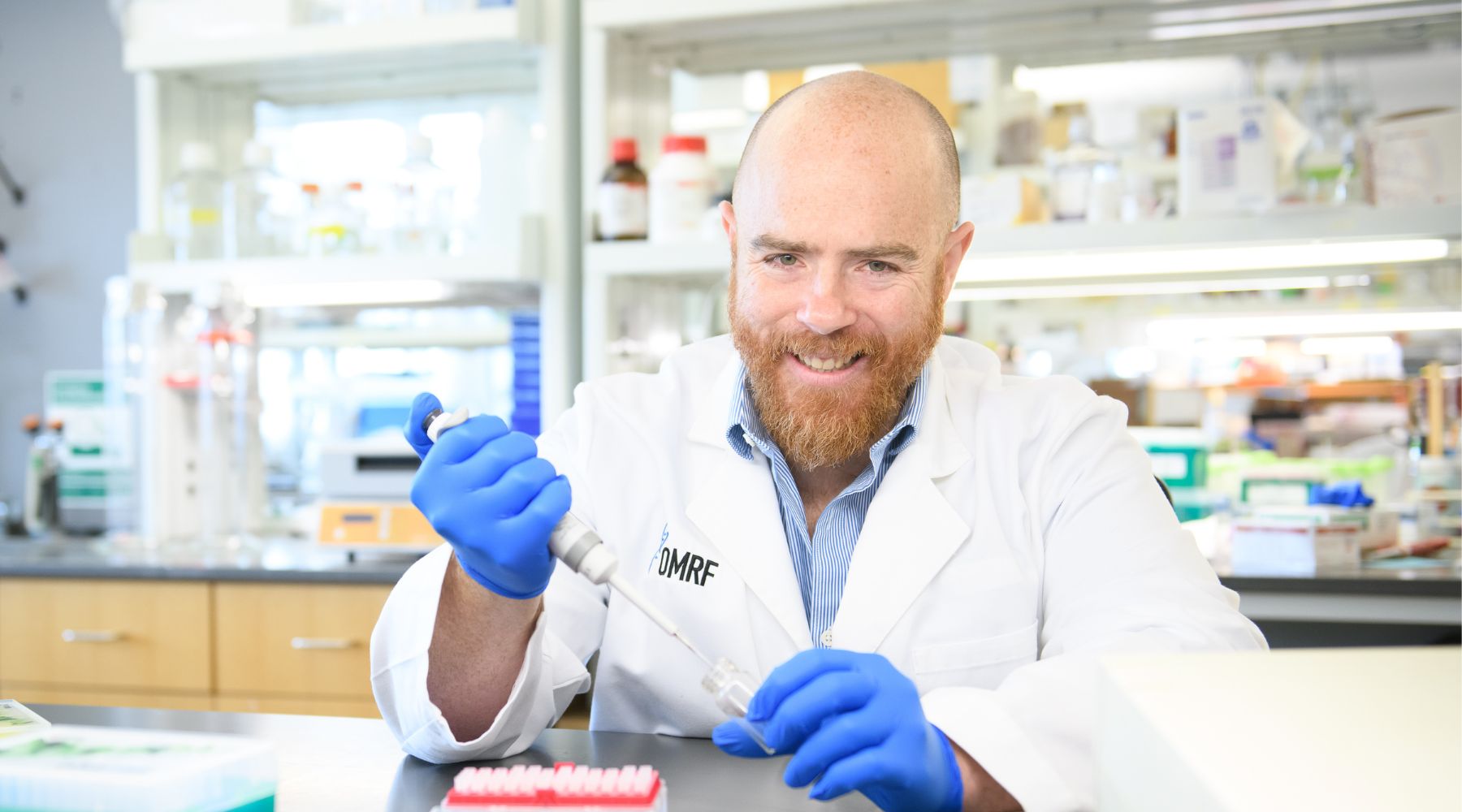An Oklahoma Medical Research Foundation scientist recently helped discover the first biological link between sugary drinks and neurodevelopmental issues.
The discovery, published in the journal Nature, revealed that anxiety and brain development problems can result when mice are exposed to high levels of fructose beginning as early as in the womb. Problems can continue through adolescence and potentially into adulthood, researchers found.
“We strongly suspect this discovery has a similar effect in humans, particularly with soft drinks and processed juices,” said OMRF’s Iker Etchegaray, Ph.D., who collaborated on the four-year study led by Justin Perry, Ph.D., of Memorial Sloan Kettering Cancer Center in New York.
Fructose is commonly used in the form of high-fructose corn syrup as a sweetener in soda, candy and many other processed foods. It has previously been implicated in Type 2 diabetes and a variety of metabolic disorders, but this is the first time scientists have connected it to issues related to brain development.
“Going into these experiments, our idea was to examine how high fructose contributes to metabolic disorders like diabetes or high blood pressure,” Etchegaray said. “The research team had no idea that fructose actually can travel to the brain.”
At low levels, fructose metabolism occurs in the intestines. Higher levels overwhelm the intestines, and fructose is diverted to the liver, which can cause complications such as fatty-liver disease.
Through this study, researchers discovered that when mice consumed large quantities of high-fructose corn syrup, fructose also got sent to the brain’s immune cells, called microglia, through a transporter protein known as GLUT5.
“Before birth up through our teen years, our brains naturally develop excess neurons and connections, and the microglia act as sort of a master gardener to prune them,” Etchegaray said. “This pruning process is a critical part of brain development, but we found that following exposure to high fructose, it didn’t occur.”
In mice genetically manipulated to remove GLUT5, that dysfunction didn’t develop, he said.
Scientists also observed that the mice exposed to high levels of fructose in the womb and during infancy displayed signs of anxiety once they grew into adolescents.
Significantly, the fructose the mice consumed equaled one soda a day for humans.
“Our research shows for the first time how this very common ingredient in the modern, Western diet directly impacts neurodevelopment,” Perry said. “And, given the recent rise in mood and anxiety disorders, how this may factor into adolescent development remains an important public health question.”
Following this discovery, the next step is determining whether fructose consumption contributes to neurodegenerative diseases like Alzheimer’s, Etchegaray said.



